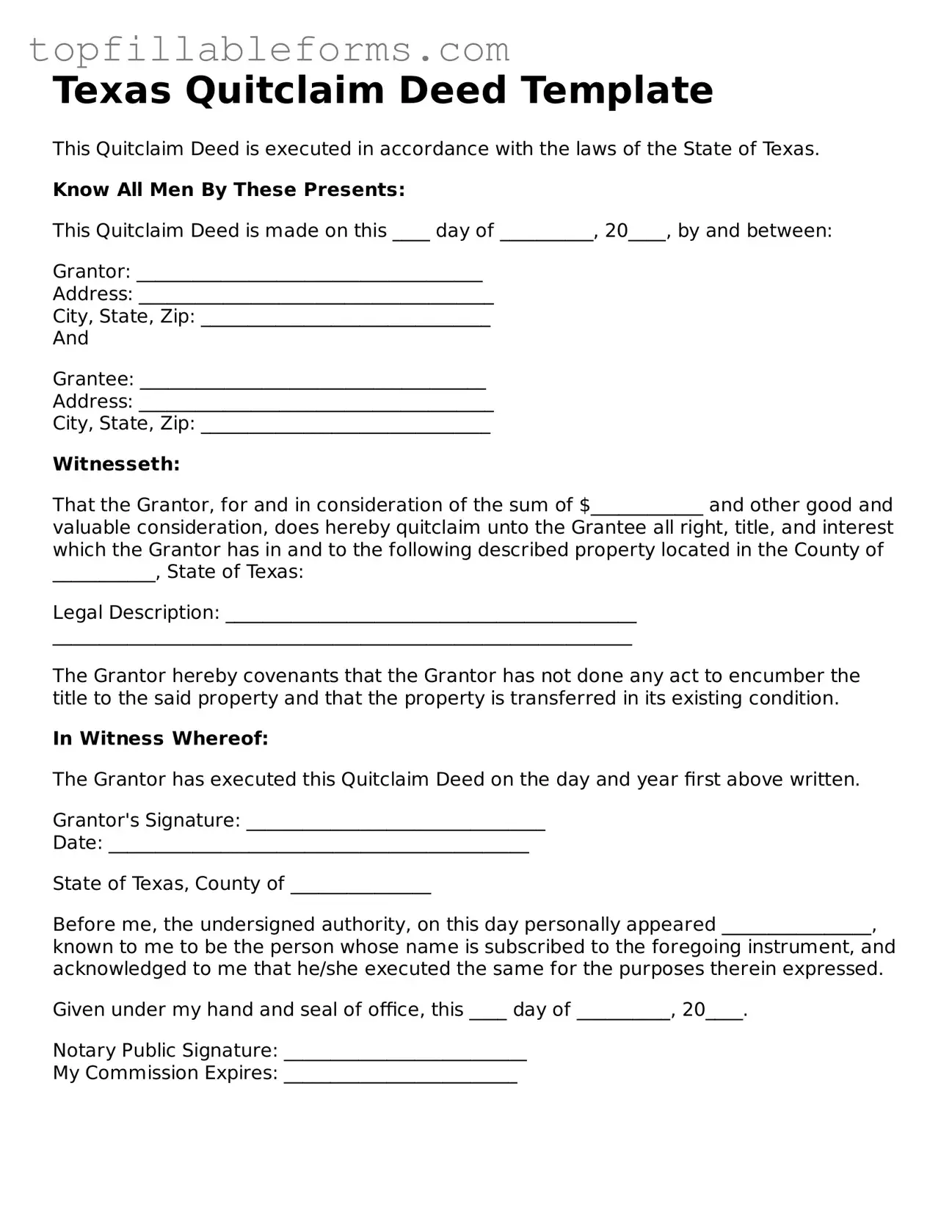Attorney-Verified Quitclaim Deed Template for Texas
A Texas Quitclaim Deed is a legal document used to transfer ownership of real estate from one party to another without any warranties or guarantees. This form is often utilized in situations where the parties know each other well, such as family transfers or settling disputes. Understanding its implications is essential for anyone involved in property transactions in Texas.
Open Quitclaim Deed Editor Here

Attorney-Verified Quitclaim Deed Template for Texas
Open Quitclaim Deed Editor Here
Finish the form now and be done
Finish your Quitclaim Deed online by editing, saving, and downloading fast.
Open Quitclaim Deed Editor Here
or
▼ PDF File
